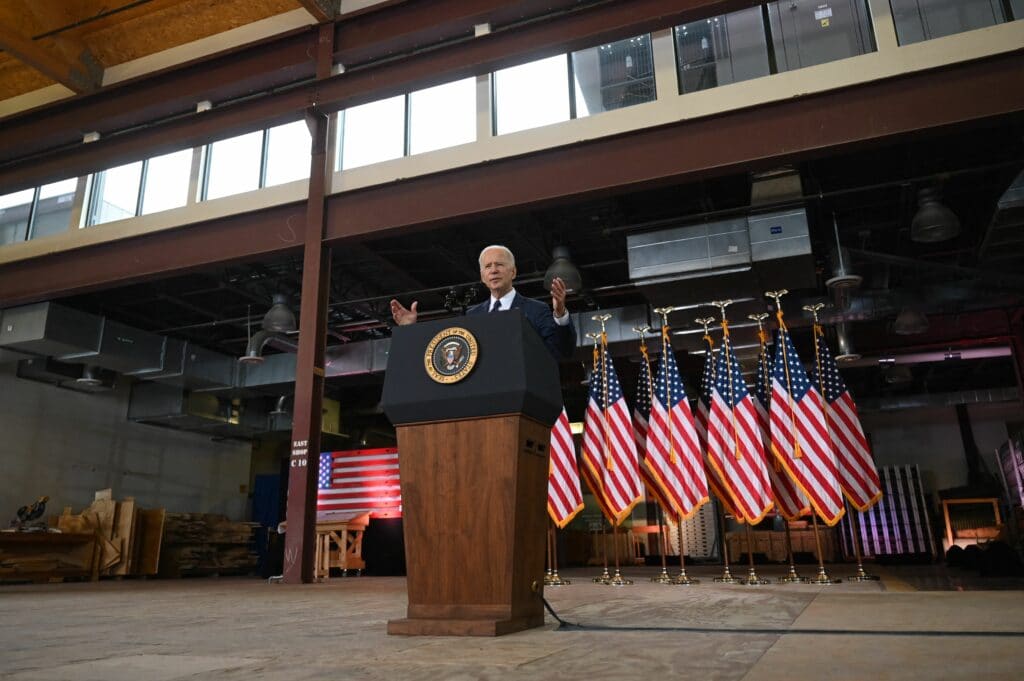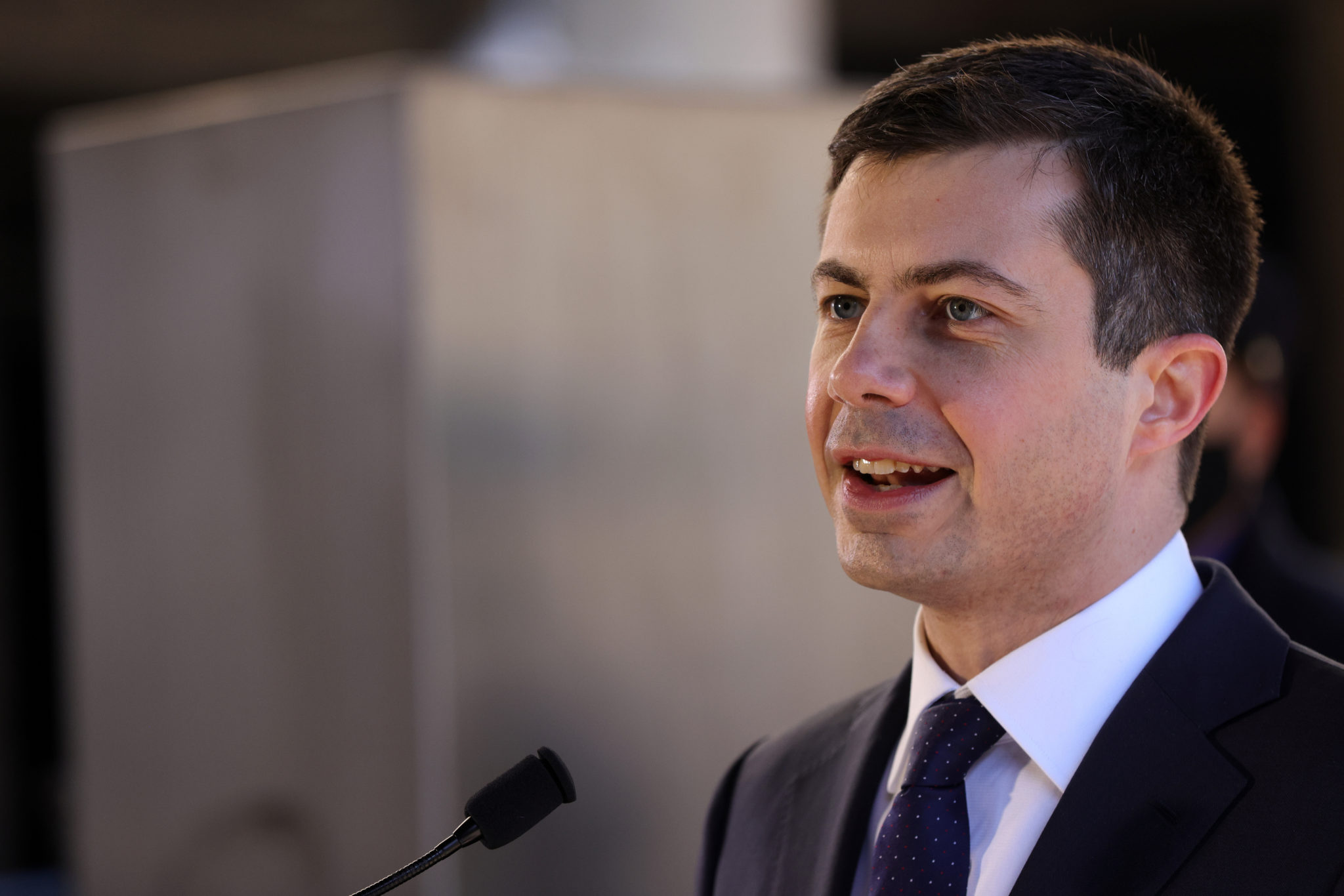Secretary of transportation Pete Buttigieg. (Alex Wong/Getty Images)
Pete Buttigieg has said that racism is “physically built into” America’s most high-profile infrastructure initiatives.
The transport secretary is at the forefront of the Biden administration’s efforts to pump huge sums of money into improving the nation’s buffeted bridges, roads, ports, airports, century-old water systems, public transportation and more.
Although Joe Biden has acknowledged that whether red or blue, rural or urban, all of America is struggling with dire infrastructure, the history of racism must not be forgotten, Buttigieg says.
Buttigieg told theGrio: “Well if you’re in Washington, I’m told that the history of that highway is one that was built at the expense of communities of colour in the DC area.
“There are stories and I think Philadelphia and Pittsburgh [and] in New York, Robert Moses famously saw through the construction of a lot of highways.
“There is racism physically built into some of our highways, and that’s why the jobs plan has specifically committed to reconnecting some of the communities that were divided by these dollars.”
Pete Buttigieg stressed that this was a “conscious choice” by the federal governments of the time to “neglect” Black communities and other communities of colour by building overpasses in this way.
The proposed $2.3 trillion plan to overhaul and restore America’s crumbling infrastructure, and to address such historic inequities, will be paid for with corporate tax hikes, he added.

From highways that sliced into once-thriving Black neighbourhoods to looming walls that segregated districts by race, the US’ infrastructure is, like Buttigieg says, one grounded in division.
One flashpoint was the Federal Housing Authority’s efforts to promote homeownership in 1935 by insuring mortgages for lenders and issuing guidelines that measured housing quality for developers and planners.
The campaign worked, spurring a housing boom as developers scrambled to build homes in often new suburban areas.
But as developers built new homes, they often did so in line with the agency’s manual that explicitly endorsed racial segregation. This left Black neighbourhoods redlined – deemed financial risks – and left to degrade over time.
Another example was one of America’s most celebrated infrastructure projects, the interstate highway system. While it threaded states together, it cut many communities apart.
A looming freeway severed Claiborne Avenue in New Orleans in the 1960s, erasing a Black neighbourhood full of businesses and homes.
Decades on and Biden’s policy-makers are addressing these historic racial inequities in infrastructure.
Not only will ageing roads, bridges and rail lines be rebuilt, but $20 billion will be given to communities of colour splintered by racist infrastructure initiatives.
Money will also be injected into bridging racial equality gaps, such as by making higher education more affordable.
